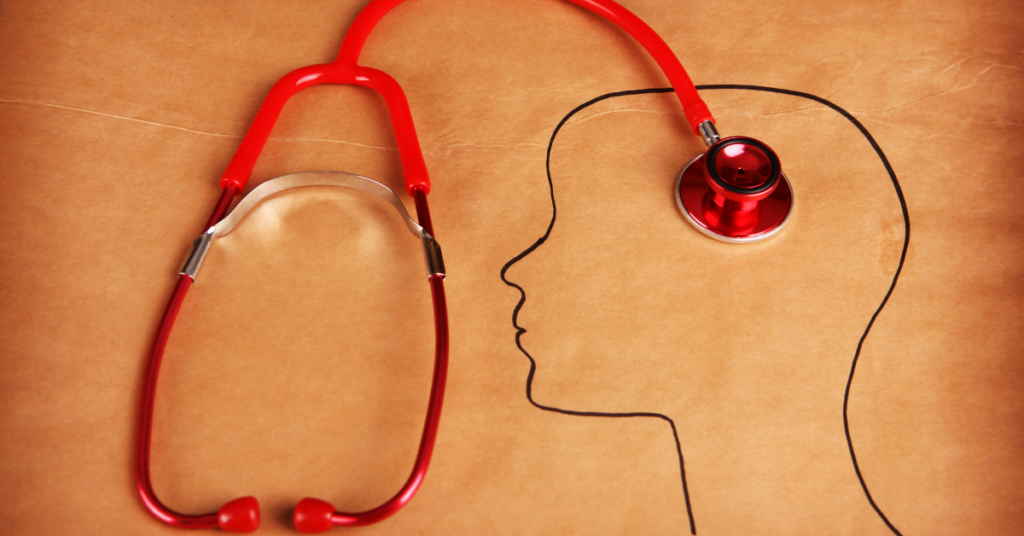Many people are not aware of the severity of mental illnesses and how they can affect a person’s life. In this blog post, we will discuss the different types of mental illnesses and mental health treatment options. We’ll also list some helpful tips on where to turn if you or someone close to you needs help with these issues.
Contents
What Is Mental Health?
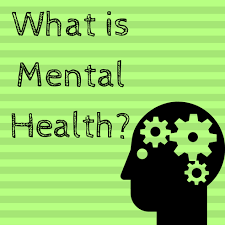 Mental health is a general term for the overall well-being of an individual. There are many things that influence mental health, These are including your relationships with friends and family members, stress levels at work or school, money issues, physical health conditions like ADHD or bipolar disorder, and more.
Mental health is a general term for the overall well-being of an individual. There are many things that influence mental health, These are including your relationships with friends and family members, stress levels at work or school, money issues, physical health conditions like ADHD or bipolar disorder, and more.
A person’s emotional state can also have a profound effect on their mental wellbeing. Negative feelings such as anxiety, depression, anger, sadness, boredom, loneliness, guilt/shame/, frustration/irritation may be associated with poor mental health. People who suffer from these negative emotions often feel out of control in some aspect of life. This can lead to low self-esteem. On the other hand, people who experience joy, enthusiasm about life and the future, and a sense of well-being may be more likely to experience healthy mental health.
Mental Health Treatment
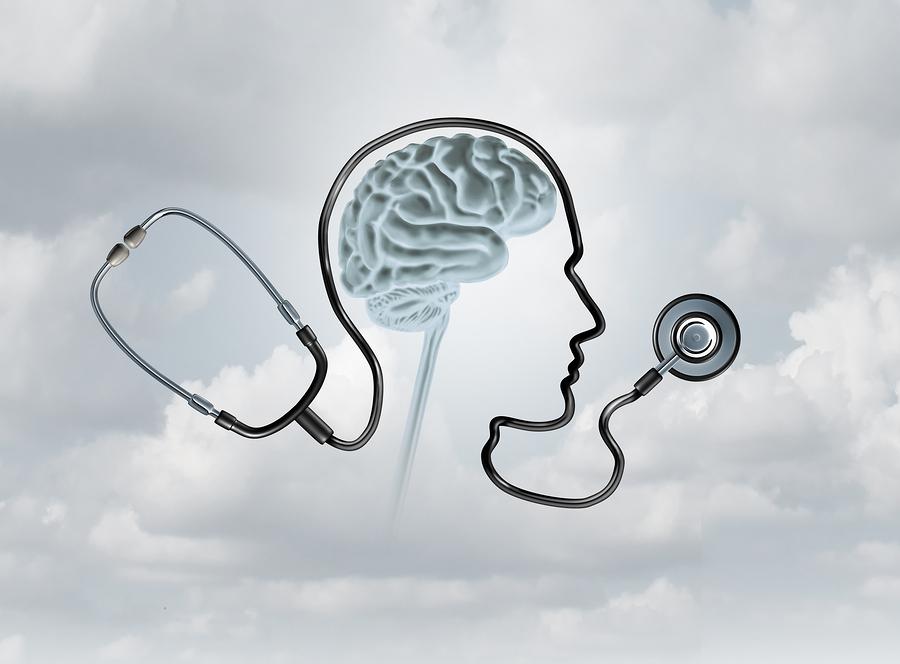
Mental health treatment depends on the underlying cause of an individual’s mental health issues. Treatment can vary from counseling to medication management (such as antidepressants), life coach services, peer support groups, and more.
Medications
 Medications are often used to treat mental health issues. While some medications can help address symptoms, they do not cure an illness. They should only be taken as directed by a doctor or psychiatrist. Medications help to reduce the frequency and severity of feelings associated with an illness.
Medications are often used to treat mental health issues. While some medications can help address symptoms, they do not cure an illness. They should only be taken as directed by a doctor or psychiatrist. Medications help to reduce the frequency and severity of feelings associated with an illness.
Counseling
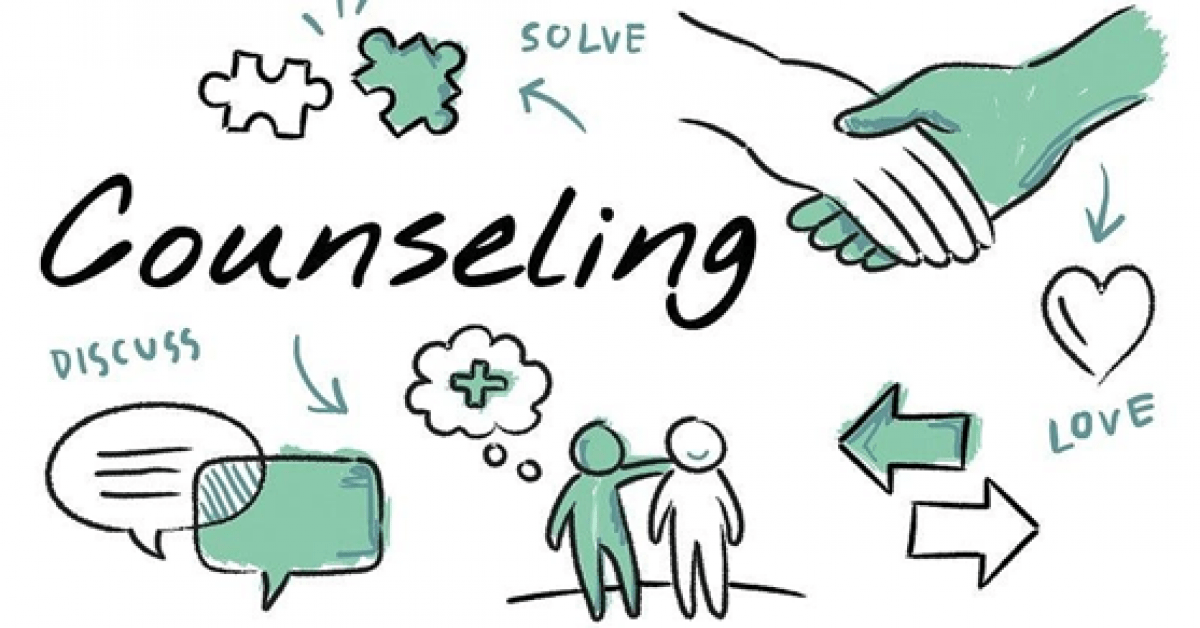 A counselor can help support individuals through common mental health issues. These mental health issues are such as depression or anxiety disorders. Counselors are trained to listen carefully, show empathy for your situation, challenge self-defeating thoughts/behaviors, provide suggestions for coping strategies. These may be helpful in certain situations (such as calming techniques). They also offer information about treatment options available to you through various resources, etc. The role of a counselor is not one where they will make decisions for you but rather work collaboratively with you on your goals. This is for better mental health. Oftentimes people experience mixed emotions during counseling sessions. This is because it helps them recognize things about themselves that were previously unknown due to denial or lack of insight.
A counselor can help support individuals through common mental health issues. These mental health issues are such as depression or anxiety disorders. Counselors are trained to listen carefully, show empathy for your situation, challenge self-defeating thoughts/behaviors, provide suggestions for coping strategies. These may be helpful in certain situations (such as calming techniques). They also offer information about treatment options available to you through various resources, etc. The role of a counselor is not one where they will make decisions for you but rather work collaboratively with you on your goals. This is for better mental health. Oftentimes people experience mixed emotions during counseling sessions. This is because it helps them recognize things about themselves that were previously unknown due to denial or lack of insight.
Peer Support Groups
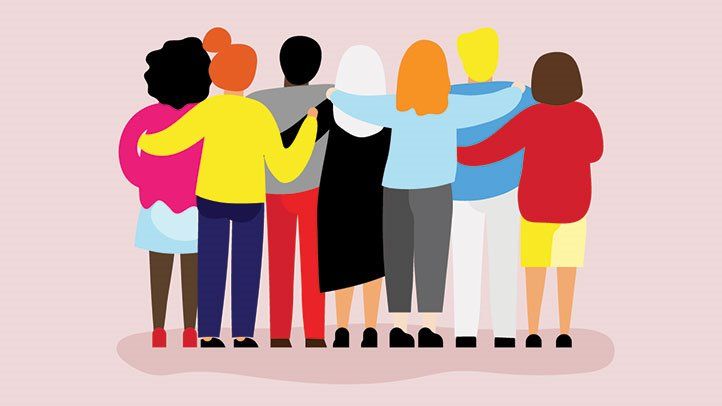 People often find peer support groups helpful for several reasons. These are including that the group members are able to relate on a personal level to their situation. These can also provide hope or reassurance in times where you might feel alone. Peer supporters also have unique insights about the illness/issues they’re facing which could be beneficial in your treatment process. For example, someone who has experienced panic attacks may benefit from attending a support group. These are specifically targeted at individuals with an anxiety disorder. It is because they will be around people who understand what it feels like when their heart starts beating faster than normal or breathing becomes shallow due to increased levels of stress hormones being released into our body during these episodes (which is known as “fight-or-flight” response).
People often find peer support groups helpful for several reasons. These are including that the group members are able to relate on a personal level to their situation. These can also provide hope or reassurance in times where you might feel alone. Peer supporters also have unique insights about the illness/issues they’re facing which could be beneficial in your treatment process. For example, someone who has experienced panic attacks may benefit from attending a support group. These are specifically targeted at individuals with an anxiety disorder. It is because they will be around people who understand what it feels like when their heart starts beating faster than normal or breathing becomes shallow due to increased levels of stress hormones being released into our body during these episodes (which is known as “fight-or-flight” response).
Family Support
 Support from family members is important in the treatment process. It allows for a safe place to talk about issues you are facing, helps your loved ones learn more about mental health disorders/illnesses. This is so they can provide support when needed. They also provide an opportunity to practice coping strategies that have been helpful or received suggestions on how to maintain healthy habits. For example, someone who has experienced depression might benefit from spending time with their significant other doing activities that used to be fun but stopped being part of their daily routine due to feeling down all the time. This could include going out for dinner at a restaurant where you enjoy eating, taking walks together, going to a favorite park, etc.
Support from family members is important in the treatment process. It allows for a safe place to talk about issues you are facing, helps your loved ones learn more about mental health disorders/illnesses. This is so they can provide support when needed. They also provide an opportunity to practice coping strategies that have been helpful or received suggestions on how to maintain healthy habits. For example, someone who has experienced depression might benefit from spending time with their significant other doing activities that used to be fun but stopped being part of their daily routine due to feeling down all the time. This could include going out for dinner at a restaurant where you enjoy eating, taking walks together, going to a favorite park, etc.
Therapies
 Therapies are a helpful adjunct to other forms of treatment. For example, Cognitive Behavioral Therapy (CBT) can help individuals with anxiety disorders and depression. This is because it helps them develop coping skills to manage stress or negative thought patterns. These may cause increased distress/difficulties in their daily life. Therapy can also help prevent relapse of symptoms.
Therapies are a helpful adjunct to other forms of treatment. For example, Cognitive Behavioral Therapy (CBT) can help individuals with anxiety disorders and depression. This is because it helps them develop coping skills to manage stress or negative thought patterns. These may cause increased distress/difficulties in their daily life. Therapy can also help prevent relapse of symptoms.
Self-Help Plan
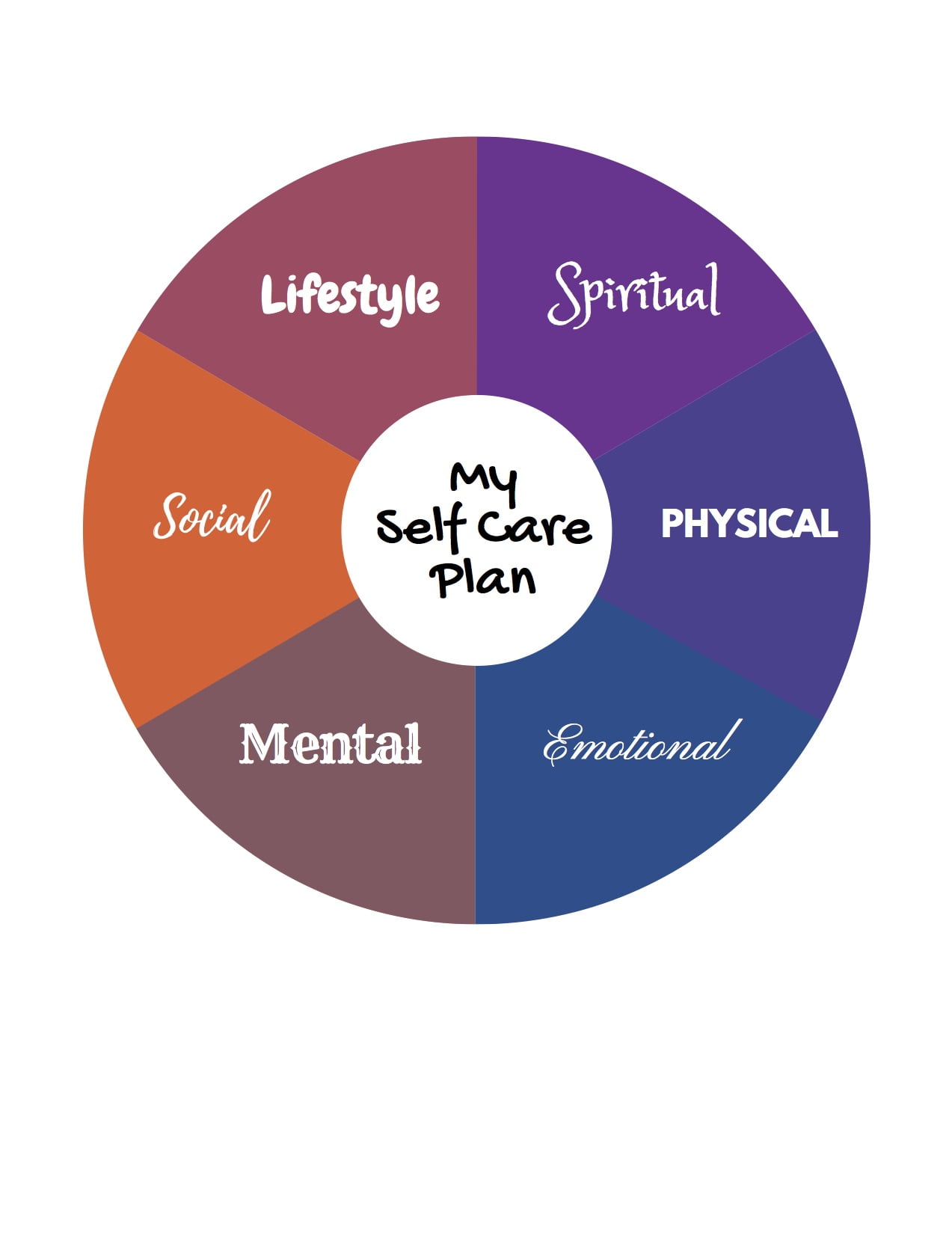 A self-help plan is a written document. This helps you to recognize your triggers and/or warning signs of increased distress. This can be helpful if someone experiences moments. This is where they start engaging in negative coping strategies. These are avoidance, harmful substance use (e.g., alcohol), or engaging in risky behavior. These behaviors could even place their lives at risk. For example reckless driving etc.
A self-help plan is a written document. This helps you to recognize your triggers and/or warning signs of increased distress. This can be helpful if someone experiences moments. This is where they start engaging in negative coping strategies. These are avoidance, harmful substance use (e.g., alcohol), or engaging in risky behavior. These behaviors could even place their lives at risk. For example reckless driving etc.
It’s important for individuals to take responsibility for their own mental health. This is so that this treatment plan will help build confidence. This is by helping them identify what works best when experiencing certain emotions. It is so they don’t feel powerless against the symptoms associated with an illness.
The self-help plan should include goals you want to accomplish along with specific steps on how goals may be achieved through the use of coping strategies. For example, if someone is recovering from depression and they want to be able to go out with friends again, the self-help plan may include steps certain steps.
Hospitalization
Inpatient programs are a safe place to receive care from medical professionals experienced in treating mental health illnesses. In addition, there is no need for medications during hospitalization which can give individuals time to reflect on their symptoms and behaviors without the influence of substance use/medications that were previously affecting them negatively.
It’s also helpful if someone has been experiencing suicidal thoughts or feelings because they have 24-hour supervision so they don’t feel alone when these difficult emotions arise. However, it’s important to recognize the risk factors associated with being hospitalized such as feeling embarrassed about having an illness (which can then lead to an unwillingness to seek future treatment), how you will be impacted by losing your independence while dependent on others for care and meals, and the financial costs associated with treatment (e.g., co-pays for hospitalizations).
Benefits of Mental Health Treatment
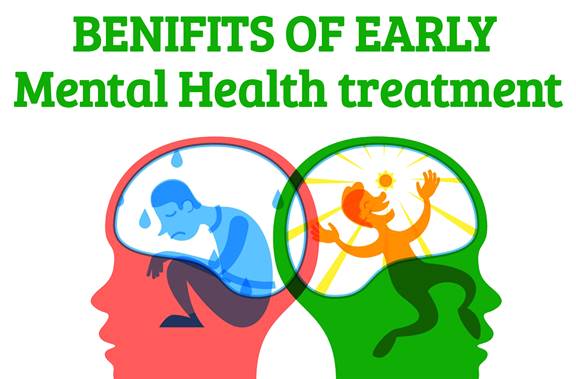
There are some of the benefits of mental health treatment.
- People who receive mental health treatments are less likely to engage in substance use/harmful behavior patterns, there is a reduced risk of relapse, and individuals feel safer knowing they have effective coping tools that can be used when experiencing difficult emotions or situations where triggers may cause distress.
- Improving your quality of life through better understanding what works best for you personally will help prevent further symptoms from occurring making it easier to engage in daily activities like spending time with family and friends again.
- People who receive mental health treatments are less likely to experience feelings of isolation or hopelessness by increasing their knowledge about the signs, symptoms, and effects that an illness may cause them personally (e.g., suicidal ideation). This can help individuals feel more connected because they know there is support available when needed which leads to feeling empowered instead of powerless against a disease.
- This treatment helps you to get back your life.
- Mental health treatment can also prevent relapses because individuals have a support system in place that they know will help them when experiencing difficult emotions or moments where triggers may cause distress making it easier for people to manage their illness and live the lives they want to lead without experiencing further symptoms from an untreated mental illness.
Conclusion
There are many ways to help combat mental health problems, and it’s important that you find the right treatment for your needs. Whether you’re dealing with depression or just feeling a little stressed out from time to time, there is no shame in asking for help. Mental illness can be as serious as physical ailments such as diabetes or heart disease; however, people who suffer from mental illnesses often feel stigmatized by society because of its invisibility.
Mental health is a subject that we should not take lightly and it’s important to know the signs of mental illness. There are many different types of therapists who can provide support and care at any stage in your journey toward wellness.
If you are looking for affordable Online Counseling MantraCare can help: Book a trial therapy session
